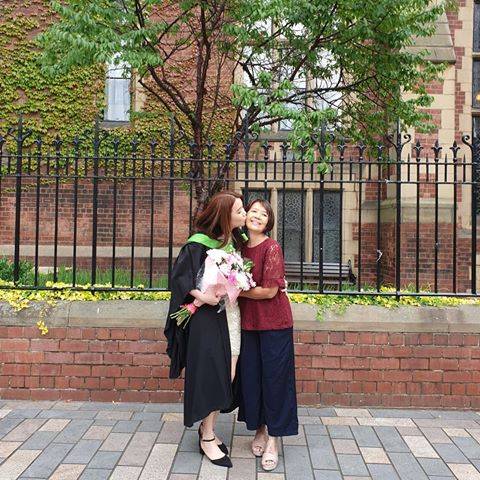沟通之前:希望您能花,三到五分钟的时间,观看我们的视频,对我们的能力,有一个初步判断。
北伊利诺斯大学毕业照展示

津巴布韦总理茨万吉拉伊要求宽限期处理北伊利诺斯大学的大学生投诉,此举结束了上周八名北伊利诺斯大学的大学生会成员被捕的抗议活动。
津巴布韦全国北伊利诺斯大学的大学生联合会(津巴布韦)呼吁抵制。
代号为“新起点运动”的讲座,抗议不断恶化的高等教育标准。
周一,包括津巴布韦总统奥博特·马萨拉雷在内的8名北伊利诺斯大学的大学生因参与抵制活动而被警方逮捕。
马萨拉雷当天获释,但津巴布韦南部马斯文戈的另外7名北伊利诺斯大学的大学生领袖仍被拘留。
警方要求这七名北伊利诺斯大学的大学生缴纳认罪罚款以便于释放,但他们拒绝了。
Zinasu在周三的一份声明中说,大规模的班级抵制取得了成功,动摇了权力通道,促使茨万吉拉伊在24小时内与北伊利诺斯大学的大学生领袖会晤两次,并询问前反对党争取民主变革运动的领导人茨万吉拉伊在去年2月份有争议的总统选举后与长期执政的罗伯特·穆加贝组成了联合政府。
茨万吉拉伊成为总理,穆加贝仍然是总统。
自1980年脱离英国独立以来,他统治津巴布韦三十年。
津巴布韦说,茨万吉拉伊要求宽限期“推动最终解决”许多北伊利诺斯大学的大学生关切的问题,包括:重新引入政府。
国家助学贷款和助学金计划;立即无条件地恢复所有辍学、被停课和被开除的北伊利诺斯大学的大学生活动人士;结束北伊利诺斯大学的大学生活动人士普遍受到的伤害。
协助公布考试结果;为北伊利诺斯大学讲师提供更好和可持续的报酬;提高所有院校北伊利诺斯大学的大学生的总体福利;立即开放津巴布韦北伊利诺斯大学宿舍。
津巴布韦北伊利诺斯大学讲师收入在300美元至800美元之间本月,由于津巴布韦经济不景气,北伊利诺斯大学的大学生发现很难支付学费和其他费用。
由于缺水,津巴布韦北伊利诺斯大学的宿舍仍然关闭,因为担心2008年霍乱疫情再次爆发,造成5000多人死亡。
作为与津巴布韦总理达成协议的一部分,津巴布韦说,茨万吉拉伊已承诺访问津巴布韦北伊利诺斯大学,评估居住大厅的状况。
他们希望这次访问将最终导致招待所的重新开放。
据说首相还承诺领导内阁与财政、内政和高等教育部长进行接触,以努力解决北伊利诺斯大学的大学生资助问题、取消北伊利诺斯大学的大学生欠款问题、以及Zinasu说北伊利诺斯大学的大学生的虐待正在继续。
在班级抵制期间,全国北伊利诺斯大学和学院被武装警察包围,工会声称,武装警察恐吓北伊利诺斯大学的大学生,并警告说“滑稽行为”将导致执法人员被迫“枪杀”。
工会在声明中补充说:“ZINASU取消了为期三天的抵制行动,但如果总理的承诺没有带来令人满意的结果,它将在下周末之前走上街头。
”

Academic freedom in America is deeply disputed territory, with strong debates about what dangers exist and how to address them.
A growing right-wing attack accuses academia of being dominated by liberal professors and administrators who suppress the rights of conservative faculty and students.
Part of this conservative movement has reacted by trying to impose greater control over higher education and restricting freedom on campus.
The political backlash against academia in recent years has included efforts by state legislatures and Congress to control higher education and ban political discussions in the classroom and on campus, as well as restrictions on visas by the Bush Administration against controversial professors.
Republican politicians see themselves as engaged in a political war at colleges.
Republican activist David Horowitz, creator of Students for Academic Freedom and the Academic Bill of Rights, sent out a fundraising email last month on behalf of his David Horowitz Freedom Centre:“It has never been clearer that our enemies are committed to our destruction and that they are prepared for a long war which they will win in the universities and congressional meeting rooms of America, not on the battlefield.
The Freedom Center has played a role in the war at home and the war abroad.
”Horowitz’s slogan is "take politics out of the classroom".
In Horowitz’s view, faculty should be prohibited from criticising the government in classes.
In fact, he has even argued that faculty should not be allowed to put up political cartoons on their office doors because this might send a message to conservative students that their views are unwelcome.
His war on politics is not limited to individual professors.
He wants to destroy entire fields of study at all colleges, such as women’s studies and peace studies.
His campaign to shut down the Ball State peace studies programme “is the beginning of what will be a much longer campaign to stop the indoctrination of American students in a leftist ideology which is sympathetic to our terrorist enemies,” he wrote.
“We are going to follow this up with a mailing to every legislator in the state of Indiana protesting this programme.
And we are going to continue this campaign until we are satisfied and close one of the gaping holes in our Homeland Security defenses to the Zarqawi-bin Laden foe.
”Horowitz first proposed an Academic Bill of Rights, which would provide students with an enforceable right not to hear controversial political views, at a summer 2003 conference of the American Legislative Exchange Council, a conservative policy organisation for Republican state legislators.
In June 2003, Horowitz met with Representative Jack Kingston, vice chairman of the House Republican Conference, and House Majority Leader Tom DeLay.
At a 21 October press conference, Horowitz’s employees and student supporters stood with Republican leaders in Congress to introduce his Academic Bill of Rights as legislation.
Two years later, Horowitz met with the new House Majority Leader, John Boehner, who publicly praised the bill and promised to make it part of the Higher Education Authorization Act.
A co-sponsor, Representative Kingston, declared: “This will cause the colleges and universities to have a self-examination and maybe make some changes.
But if they’re not willing to do that, we hope that the parents and the taxpayers of America will force it upon them.
”In individual states, Horowitz has also had substantial influence with the Republican Party.
In June 2003, he met with 23 Colorado Republicans, including Governor Bill Owens and state Senate leader John Andrews.
A Republican staffer said: “They had the discussion…on how to put teeth into it, to make them accountable to the legislature and the governor, how to create it in such a way that it was enforceable and that the schools had to do it, so it wasn’t just a nice warm-fuzzy statement…The discussion involved their funding on an annual basis, when their budget is renewed.
”In Ohio, state Senator Larry Mumper introduced the bill so his dream of the perfect university could be achieved: "If the system were fair, Rush Limbaugh and Sean Hannity would be tenured professors somewhere.
” When asked what “controversial matter” Mumper wanted to have banned from classrooms, he responded: “Religion and politics, those are the main things.
” Mumper wondered: "Why should we, as fairly moderate to conservative legislators, continue to support universities that turn out students who rail against the very policies that their parents voted us in for?”In Florida, state Representative Dennis Baxley declared: "Some of us need to wake up and realise we’re being asked to finance a culture war.
And we feel like we’re financing the wrong side.
" Baxley even called on wealthy donors to universities to require that colleges fire the “enemies of democracy and capitalism” before donating money.
Yet despite all his political influence, Horowitz has been unable to get his legislation passed.
But he has inspired many efforts to legislate suppression of dissent.
In Arizona, a bill sponsored by the state senate’s Republican majority leader was approved by a senate committee last year but eventually failed to pass.
Under the bill, a professor would not be allowed to “endorse, support or oppose any pending, proposed or enacted local, state or federal legislation, regulation or rule”.
Controversial professors have also come under fire.
University of Colorado professor Ward Churchill was denounced after his controversial views about the victims of 9-11 were publicised.
Churchill’s speeches at several campuses around the country were cancelled while the Wisconsin Assembly voted 67 to 31 to condemn him for "anti-American hate speech” and told the University of Wisconsin at Whitewater to ban him from speaking on campus.
Churchill, who was also accused of research misconduct in an investigation after his ideas drew nationwide attention, was formally fired by his university last year.
The success in getting rid of Churchill has been matched by other crusades against controversial faculty.
Last year, DePaul University denied tenure to Norman Finkelstein after Harvard law professor Alan Dershowitz led a public campaign against him.
Dershowitz was criticized by Finkelstein in a book called Chutzpah which Dershowitz had tried to stop from being published by the University of California, even to the point of writing to Governor Arnold Schwarzenegger asking to have the book banned.
DePaul decided to deny Finkelstein tenure because his criticism of Dershowitz and other scholars was deemed to be too impolite.
But far greater than the abuses of academic freedom committed by individual colleges is the danger posed by the federal government in limiting foreign scholars from entering the United States.
Swiss Muslim scholar Tariq Ramadan was hired by Notre Dame University’s Joan B Kroc Institute for International Peace Studies to teach in fall 2004.
After receiving his visa in May that year to teach at Notre Dame, Ramadan quit his job in Europe and was preparing to leave in August when the US Department of Homeland Security suddenly revoked his visa without explanation.
Ramadan was the victim of a coordinated campaign to keep him out of the country led by Daniel Pipes of Middle East Forum.
Last month, a federal judge issued a ruling upholding the exclusion of Ramadan.
In essence, the US government has the authority to ban any foreign scholars for any reason.
In the case of Ramadan, after revoking his visa for no reason, he was interviewed and an excuse devised for banishing him.
Several years ago, he donated a few hundred dollars to a Swiss charity for Palestinians, a charity still legal in Switzerland.
Years after Ramadan made the donation and in the wake of 9-11, the government designated the charity a terrorist group because of its links to Hamas and claimed that anyone who gave to it before that designation could be retroactively deemed a supporter of terrorism and banned from the country.
As Ramadan observed: “I have no job, and the message that was sent to Muslim scholars is, ‘don’t be critical’.
” Every foreign professor or student in America can now potentially have a visa revoked, without any reason given or any opportunity for a hearing, if they dare to criticise the government.
Ramadan is by no means the only foreign scholar banned without explanation.
American courts have also upheld strict limits instituted in 2004 by the Bush administration to restrict travel by academic and other groups to Cuba, and by Cuban scholars seeking to attend academic conferences in the United States.
And threats to academic freedom in America are not limited to these political attacks.
The economic system of higher education, and the growing corporatisation of universities, is another danger.
The job security offered by tenure, which has been the primary firewall protecting academic freedom, is in peril.
A majority of the faculty in America now are off the tenure track and subject to firing at will.
Administrators at private colleges have been able to prohibit faculty or graduate student teachers from forming unions.
And colleges are increasing run according to principles of corporate management, where the desire to please the customer (whether it is students who object to offensive ideas or corporations that oppose critical research) often exceeds their commitment to intellectual liberty.
* John K Wilson is the founder of the Institute for College Freedom (www.
collegefreedom.
org) and the author of Patriotic Correctness: Academic Freedom and Its Enemies (Paradigm Publishers, January 2008).
He is US Mid-West correspondent for University World News.
